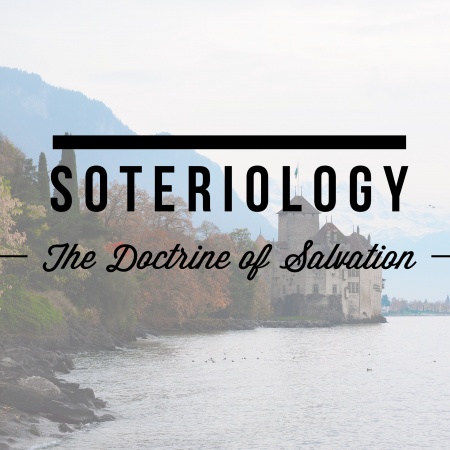Recently I finished a massive 15,000 word dissertation for my MA degree in theology! Needless to say, it was a wordy, complex, and at times tedious process. But I chose the topic of my dissertation with a practical goal in mind. The best kind of theology is theology aimed at deepening our love for God and worship of him, as well as our knowledge of him. I wanted to reflect deeply on one of the key elements of the Christian story academically so I could better communicate the amazing good news of that story to the people around me. In the next few posts I want to explain what my dissertation is all about so that those ‘sitting in the pew’ might better appreciate what it means to say that Jesus really is ‘good news’.
A great place to begin to unpack this is by considering the Bible itself. The Bible is basically a story of rescue. It constantly speaks of a God who becomes involved in human history in order to save and deliver people. God is repeatedly described as a rescuer and refuge, a deliverer and savior. Theologians often sum up the Bible story using the phrase, ‘narrative of salvation’. Ultimately, the Bible isn’t a moral guide, or a history book (though both of those things are important, see 1 Corinthians 15), it is primarily a story of salvation. It describes and recounts the works of a God who doesn’t stand at a distance, set the machine going, and leave it at that, but a God who seeks relationship with people, gets involved in people’s lives, and seeks to save his people from harm.
Psalm 18 is a brilliant example,
“The LORD is my rock and my fortress and my deliverer, my God, my rock, in whom I take refuge, my shield, and the horn of my salvation, my stronghold.”
All of this culminates in the arrival of Jesus. In fact, Jesus’ name means ‘God saves’ and Jesus speaks of himself as the ultimate fulfillment of God’s rescue mission (John 5:39). The apostle John (3:17) sums it up when he writes,
“For God did not send his Son into the world to condemn the world, but in order that the world might be saved through him.”
You might have experienced talk like this if you’ve ever been to a Church service. You may have heard Christians say, “Jesus saved me” or you might have seen cars sporting battered bumper stickers with the words ‘Jesus saves!’ printed in comic sans. My dissertation was all about what it means for someone to be ‘saved’. What are we saved from? Why are we saved and for what purpose? And how is it that God saves us?
 These kinds of questions are questions concerning what theologians call ‘soteriology’ taken from the Greek word for salvation. They’re basically questions of ‘salvation-ology’ and the answers to each have been rather controversial at decisive points in Christian history. Different answers to the question of how God saves us were influential at the beginning of the Protestant Reformation. More recently, the original answers given to these questions by Protestants have been questioned by some Protestant theologians. I sought to defend the traditional answers against some of these recent objections. In order to explain my dissertation I’ll attempt to unpack these questions in order over the next few posts (for those who are still reading) with the hope that it will encourage us to worship God more deeply and seek him more wholeheartedly.
These kinds of questions are questions concerning what theologians call ‘soteriology’ taken from the Greek word for salvation. They’re basically questions of ‘salvation-ology’ and the answers to each have been rather controversial at decisive points in Christian history. Different answers to the question of how God saves us were influential at the beginning of the Protestant Reformation. More recently, the original answers given to these questions by Protestants have been questioned by some Protestant theologians. I sought to defend the traditional answers against some of these recent objections. In order to explain my dissertation I’ll attempt to unpack these questions in order over the next few posts (for those who are still reading) with the hope that it will encourage us to worship God more deeply and seek him more wholeheartedly.